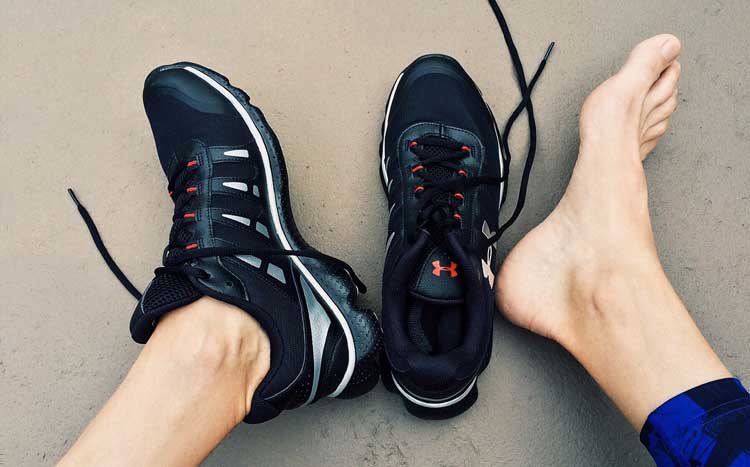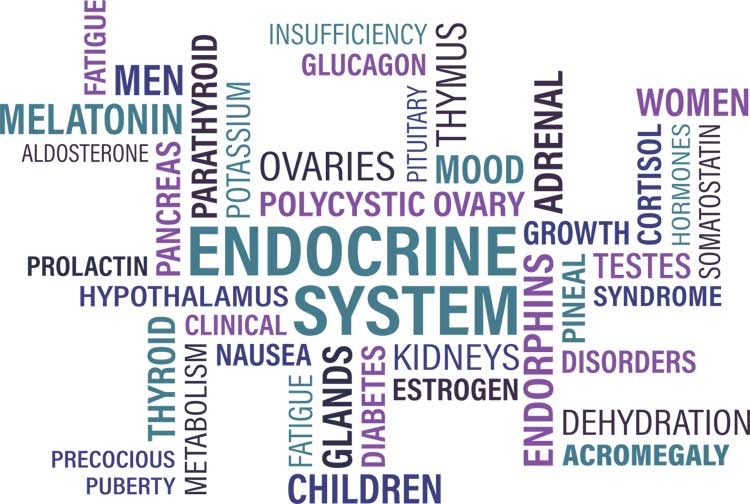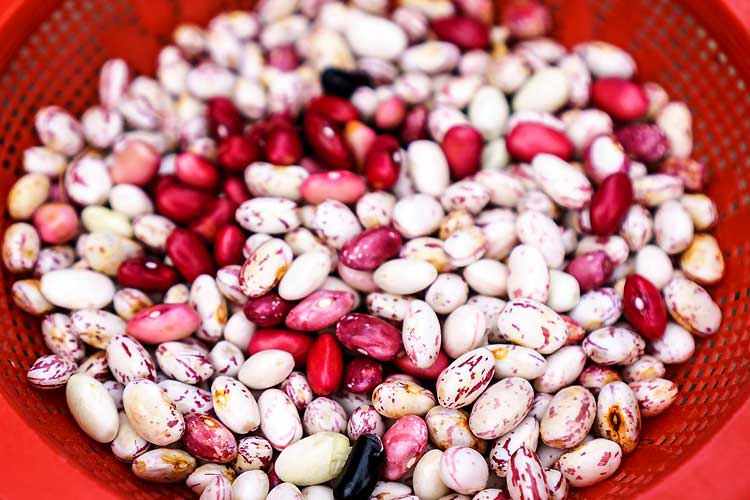
Congratulations, you did it—you successfully made it to your goal weight. But it is no secret that, after losing weight, people have a tough time keeping it off. Are you regaining your lost weight too? Find out why.
Diet
 Diet is perhaps the most important factor in stabilizing body weight. Just because a person has lost weight doesn’t mean that he/she can already eat as much as he/she did before losing weight. As a matter of fact, they have to eat even less! However, this is very difficult to achieve. Studies show that people who have recently undergone weight loss plans have more tendencies to gain weight as compared to those who did not. This is because during their weight loss diet, they have constantly starved themselves in order to lose fats. According to the Journal of Preventive Medicine, binge dieting due to prior starvation can promote overeating after the goal weight is achieved.
Diet is perhaps the most important factor in stabilizing body weight. Just because a person has lost weight doesn’t mean that he/she can already eat as much as he/she did before losing weight. As a matter of fact, they have to eat even less! However, this is very difficult to achieve. Studies show that people who have recently undergone weight loss plans have more tendencies to gain weight as compared to those who did not. This is because during their weight loss diet, they have constantly starved themselves in order to lose fats. According to the Journal of Preventive Medicine, binge dieting due to prior starvation can promote overeating after the goal weight is achieved.
References:
Keränen AM, Savolainen MJ, Reponen AH, Kujari ML, Lindeman SM, Bloigu RS, Laitinen JH. “The effect of eating behavior on weight loss and maintenance during a lifestyle intervention.” Prev Med, 2009: 32-38
Not Sticking To Exercise Plan
 Exercise is also one factor that helps one to burn any unwanted fats in the body. According to studies, when the muscles are no longer worked out, they tend to return to their original state, or worse, fats begin to accumulate in them. Romer and his colleagues discovered that individuals who stopped exercising after losing weight experienced reduced metabolism, and eventually gained weight. Here are the top 10 exercises to lose belly fat.
Exercise is also one factor that helps one to burn any unwanted fats in the body. According to studies, when the muscles are no longer worked out, they tend to return to their original state, or worse, fats begin to accumulate in them. Romer and his colleagues discovered that individuals who stopped exercising after losing weight experienced reduced metabolism, and eventually gained weight. Here are the top 10 exercises to lose belly fat.
References:
Romer, L.M, and McConnell AK. “Specificity and reversibility of inspiratory muscle training.” Med Sci Sports Exerc, 2003: 244-246.
Not Enough Sleep
 Aside from fatigue and decrease in over-all performance, did you know that lack of enough sleep can also contribute to your weight gain? A study by Taheri (2006) in individuals who constantly deprive themselves of sleep generally showed that they are more prone to weight gain. This is because enough sleep is important in maintain the body’s energy balance. As a result of lack of sleep, your body prompts you to eat more in order to maintain that energy balance. Here are 13 good night sleep tips for a better you!
Aside from fatigue and decrease in over-all performance, did you know that lack of enough sleep can also contribute to your weight gain? A study by Taheri (2006) in individuals who constantly deprive themselves of sleep generally showed that they are more prone to weight gain. This is because enough sleep is important in maintain the body’s energy balance. As a result of lack of sleep, your body prompts you to eat more in order to maintain that energy balance. Here are 13 good night sleep tips for a better you!
References:
Taheri, S. “The link between short sleep duration and obesity: we should recommend more sleep to prevent obesity.” Arch Dis Child, 2006: 881-884.
Depression
 Did you know that depression can also lead to regaining the weight you’ve lost? Studies show that people who have frequent mood swings have more cravings for unhealthy foods and more resistance to engaging in physical activity. In the Journal of Affective Disorders, Wurtman (1993) published his work about the effects of depression to the serotonin levels in the body. Serotonin is the hormone responsible for normalizing food intake and controlling moods in humans. According to Wurtman, when a person is depressed, his serotonin levels drops; this then results to binge eating and eventually weight gain.
Did you know that depression can also lead to regaining the weight you’ve lost? Studies show that people who have frequent mood swings have more cravings for unhealthy foods and more resistance to engaging in physical activity. In the Journal of Affective Disorders, Wurtman (1993) published his work about the effects of depression to the serotonin levels in the body. Serotonin is the hormone responsible for normalizing food intake and controlling moods in humans. According to Wurtman, when a person is depressed, his serotonin levels drops; this then results to binge eating and eventually weight gain.
References:
Wurtman, J.J. “Depression and weight gain: the serotonin connection.” J Affect Disord, 1993: 183-192.
Not Eating Enough Amounts of Protein
 A study by Leidy and his colleagues published in the journal American Society for Nutrition showed that proteins are important factors in maintaining body weight. This effect is due to the ability of proteins to control energy metabolism and intake, and appetite. Having regular intake of protein-rich foods are also related to promote satiety, and reduce blood pressure and total body weight. Here are the top 10 vegetarian protein sources.
A study by Leidy and his colleagues published in the journal American Society for Nutrition showed that proteins are important factors in maintaining body weight. This effect is due to the ability of proteins to control energy metabolism and intake, and appetite. Having regular intake of protein-rich foods are also related to promote satiety, and reduce blood pressure and total body weight. Here are the top 10 vegetarian protein sources.
References:
Leidy HJ, Clifton PM1, Astrup A1, Wycherley TP1, Westerterp-Plantenga MS1, Luscombe-Marsh ND1, Woods SC1, Mattes RD1. “The role of protein in weight loss and maintenance.” Am J Clin Nutr., 2015.
Drinking Alcohol
 While it is no secret that drinking too much alcohol is bad for your health, a recent study revealed that drinking can also contribute to weight gain after a successful weight loss attempt. Alcohol is an important source of energy. In fact, a study published in the journal Critical Reviews in Clinical Laboratory Sciences showed that alcohol is highly related to positive energy balance, hence weight gain. Scientific data revealed that people who drink alcohol on a more regular basis tend to have increased weight as compared to those who only drink occasionally.
While it is no secret that drinking too much alcohol is bad for your health, a recent study revealed that drinking can also contribute to weight gain after a successful weight loss attempt. Alcohol is an important source of energy. In fact, a study published in the journal Critical Reviews in Clinical Laboratory Sciences showed that alcohol is highly related to positive energy balance, hence weight gain. Scientific data revealed that people who drink alcohol on a more regular basis tend to have increased weight as compared to those who only drink occasionally.
References:
PM, Suter. “Is alcohol consumption a risk factor for weight gain and obesity?” Crit Rev Clin Lab Sci, 2005: 197-227.
Drinking Coffee Instead of Green Tea
 You probably didn’t know that drinking coffee can actually contribute to your weight regain. A recent study published in the journal Nutrition and Diabetes showed that females who consumed coffee had significantly gained weight as compared to those who drank tea instead. The scientists hypothesized that drinking coffee can result to hyperglycemia, or the condition of highly increased blood sugar levels.
You probably didn’t know that drinking coffee can actually contribute to your weight regain. A recent study published in the journal Nutrition and Diabetes showed that females who consumed coffee had significantly gained weight as compared to those who drank tea instead. The scientists hypothesized that drinking coffee can result to hyperglycemia, or the condition of highly increased blood sugar levels.
References:
I. Rustenbeck, V Lier-Glaubitz,1 M Willenborg,1 F Eggert,2 U Engelhardt,3 and A Jörns4. “Effect of chronic coffee consumption on weight gain and glycaemia in a mouse model of obesity and type 2 diabetes.” Nutr Diabetes, 2014.
Being In Chronic Inflammation
 Weight gain after weight loss program? You might have some type of chronic inflammation. “Inflammation begins in the fat cells themselves. Fat cells are the first to be affected by the development of obesity. The inflammation of the fat tissue is the one responsible for causing insulin resistance. And insulin resistance is the major cause of obesity and diabetes“, says Chris Kresser, a health professional. Inflammation differs from every individual; hence, it is always best to consult a physician. Here are 5 super foods to avoid joint-pain.
Weight gain after weight loss program? You might have some type of chronic inflammation. “Inflammation begins in the fat cells themselves. Fat cells are the first to be affected by the development of obesity. The inflammation of the fat tissue is the one responsible for causing insulin resistance. And insulin resistance is the major cause of obesity and diabetes“, says Chris Kresser, a health professional. Inflammation differs from every individual; hence, it is always best to consult a physician. Here are 5 super foods to avoid joint-pain.
References:
Kresser, Chris. How inflammation makes you fat and diabetic (and vice versa). 2015. Link.
Thyroid Problems
 The thyroid gland is the butterfly-shaped organ located in the base of your neck. According to studies published in the European Journal of Pediatrics, impaired thyroid function is one probable reason why you’re gaining the weight you’ve lost. The thyroid gland is responsible for secreting hormones which are necessary for weight control. When they secrete less of these hormones, there is a decrease in energy expenditure, hence, difficulty in maintaining the weight loss.
The thyroid gland is the butterfly-shaped organ located in the base of your neck. According to studies published in the European Journal of Pediatrics, impaired thyroid function is one probable reason why you’re gaining the weight you’ve lost. The thyroid gland is responsible for secreting hormones which are necessary for weight control. When they secrete less of these hormones, there is a decrease in energy expenditure, hence, difficulty in maintaining the weight loss.
References:
Kiortsis, D.N., I. Durack, and G. Turpin. “Effects of a low-calorie diet on resting metabolic rate and serum tri-iodothyronine levels in obese children.” Eur J Pediatr, 1999: 446-450.
Restricting Carbohydrates
 Interestingly, a study by Azadbakht and his colleagues (2014) showed that the restriction of carbohydrates can result to weight gain. Carbohydrates are important sources of energy, and thus is important in maintain energy balance in the body. In their experiment, people who did not restrict themselves of carbohydrates had maintained weight as compared to those who didn’t. Here are the top 12 Healthy Carbohydrates To Lose Weight.
Interestingly, a study by Azadbakht and his colleagues (2014) showed that the restriction of carbohydrates can result to weight gain. Carbohydrates are important sources of energy, and thus is important in maintain energy balance in the body. In their experiment, people who did not restrict themselves of carbohydrates had maintained weight as compared to those who didn’t. Here are the top 12 Healthy Carbohydrates To Lose Weight.
References:
Azadbakht, Fatemeh Azizi Soeliman and Leila. “Weight loss maintenance: A review on dietary related strategies.” J Res Med Sci, 2014: 286-275.
Skipping Breakfast
 Sudden weight gain? You must be skipping breakfast, aren’t you? A study by Japanese scientists in individuals who recently had undergone weight loss program proved that skipping breakfast can actually contribute to weight gain, rather than weight loss. The results of their study showed that the individuals who skipped breakfast had rather increased weight due to binged eating during lunch and dinner. As a result, their weight and waist lines greatly increased.
Sudden weight gain? You must be skipping breakfast, aren’t you? A study by Japanese scientists in individuals who recently had undergone weight loss program proved that skipping breakfast can actually contribute to weight gain, rather than weight loss. The results of their study showed that the individuals who skipped breakfast had rather increased weight due to binged eating during lunch and dinner. As a result, their weight and waist lines greatly increased.
References:
Yoko Watanabe, Isao Saito,2 Ikuyo Henmi,3 Kana Yoshimura,4 Kotatsu Maruyama,4 Kanako Yamauchi,5 Tatsuhiro Matsuo,1 Tadahiro Kato,1,6 Takeshi Tanigawa,4 Taro Kishida,1 and Yasuhiko Asada1. “Skipping Breakfast is Correlated with Obesity.” J Rural Med, 2014: 51–58.
Being Dehydrated
 Although ironic as it may seem, being dehydrated makes you regain the weight you’ve lost. Interestingly, a study published in the Journal of Strength & Conditioning Research, showed that frequent dehydration is highly correlated to fluctuations in body weight.
Although ironic as it may seem, being dehydrated makes you regain the weight you’ve lost. Interestingly, a study published in the Journal of Strength & Conditioning Research, showed that frequent dehydration is highly correlated to fluctuations in body weight.
References:
Jetton, A.M, and Meucci M, Haines TL, Collier SR, Morris DM, Utter AC. Lawrence MM. “Dehydration and acute weight gain in mixed martial arts fighters before competition.” J Strength Cond Res, 2013: 1322-1335.













